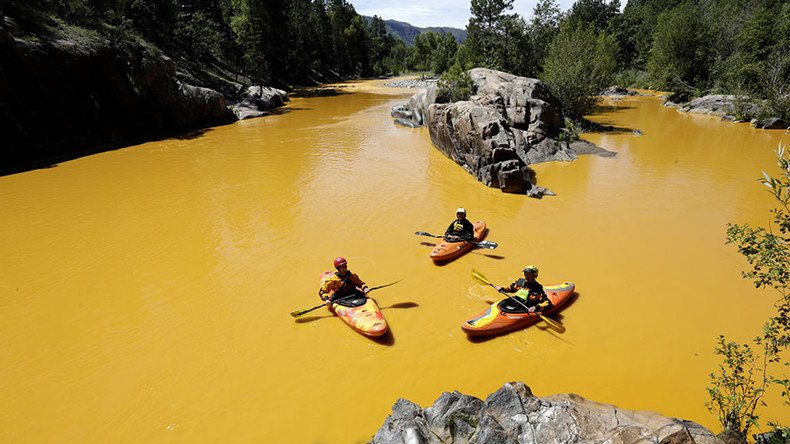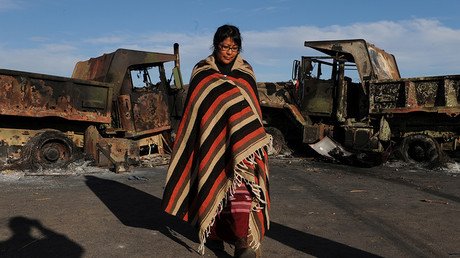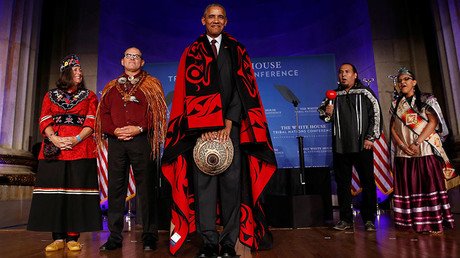‘Colossal damage’: Navajo Nation sues US govt for $160mn over Colorado mine spill

The Navajo Nation has filed a $160 million lawsuit against the US government for damages and ongoing injuries caused by an August 2015 mine spill which released millions of gallons of toxic waste near the tribe’s territory.
The filing, announced in a Monday press release, claims that the Gold King Mine spill negatively impacted communities along the San Juan River on Navajo Nation territory when it released millions of gallons of toxic waste – including lead, arsenic, and mercury – into the nearby Animas River, ultimately transforming the connecting San Juan River from a “life-giver and protector” to a “threat” to the Navajo people, crops, and animals.
“In particular, it has impaired our ability to maintain the cultural, ceremonial, and spiritual practices that undergird the Navajo way of life. Through this claim and our corresponding lawsuit, we are demanding that the US government finally provide the Navajo Nation relief,” Navajo Nation Attorney General Ethel Branch said in the release, according to USA Today.
The lawsuit is aimed at the Environmental Protection Agency (EPA), which has claimed responsibility for the spill. It seeks $159 million in damages, as well as an additional sum of around $3.2 million to cover expenses already submitted to the EPA which have yet to be reimbursed.
A seven-page letter from the tribe to the EPA claims officer Kenneth Redden describes what happened the day of the spill, noting that “shortly after beginning the excavation, the operator hit a spurt of water. Within minutes, a massive volume of toxic water poured out of the mine uncontrollably.”
It also mentions video footage during the blowout at the mine near Silverton, Colorado, in which a worker reportedly said “What do we do now?” It goes on to accuse the EPA of having “insufficient emergency protocols in place” and being “entirely unprepared to deal with the colossal damage it had unleashed.”
The letter also claims the agency failed to notify the reservation’s residents of the spill for “nearly two days,” and accuses it of ignoring the “years-long buildup of contaminants in the Gold King Mine, despite being on notice of the risk of a blowout.”
The document stresses that the spill “continues to harm the Navajo Nation and will do so for years to come,” noting the ongoing need for medical monitoring, mental health counseling, ecological monitoring, and other programs aimed at identifying and addressing the “near and long-term impacts on the environment and Navajo people.”
The newest filing comes just four months after the Navajo Nation filed a separate suit against the EPA in August.
The mine spill ultimately tainted waters in Colorado, New Mexico, and Utah. The Navajo Nation is present in two of those states – southwestern Utah and northwestern New Mexico. The territory, which spans 27,425 square miles, also occupies portions of northeastern Arizona.
The Monday press release came just one day after the Standing Rock Sioux Tribe announced it had emerged victorious in its fight against the Dakota Access Pipeline, stating that the US Army Corps of Engineers will not grant permission for the disputed pipeline to cross Lake Oahe, and that alternative routes are being studied.
The pipeline, which the tribe argued would threaten the community’s drinking water and damage sites of sacred significance, was the subject of a fierce standoff between protesters and local authorities, with many officers accused of using violent measures against peaceful demonstrators in recent weeks.














